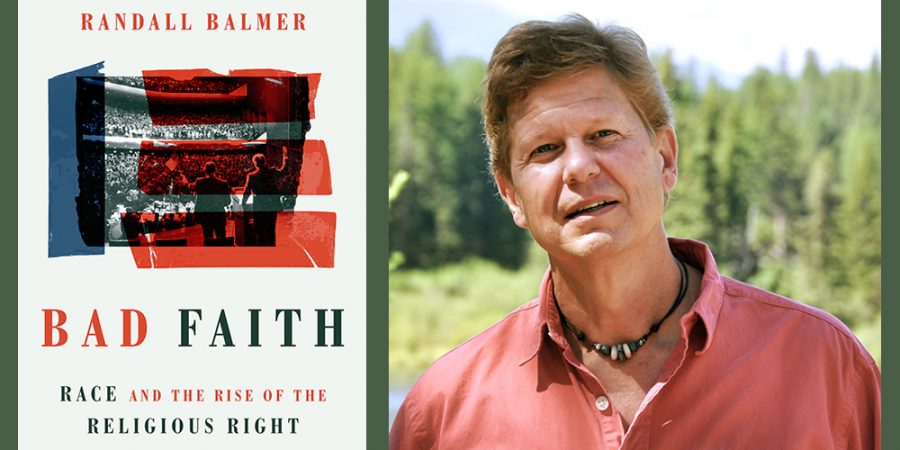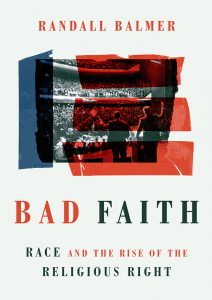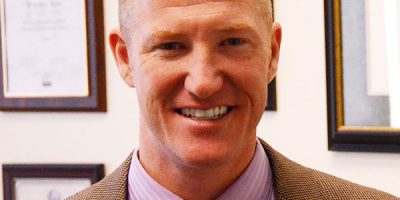Specifically, as Balmer shows, it was government interference in “segregation academies”
Randall Balmer on why racism, not abortion, birthed the religious right

Sept. 22, 2021 (RNS) — White evangelicals have long held that the 1973 Supreme Court ruling legalizing abortion propelled the rise of the political movement known as the religious right.
Wrong, says Randall Balmer, who in his new book, “Bad Faith: Race and the Rise of the Religious Right,” argues that race, rather than abortion, galvanized white evangelical political action.
Specifically, as Balmer shows, it was government interference in “segregation academies” such as Bob Jones University in Greenville, South Carolina, that launched the religious right. Bob Jones and other schools, such as Jerry Falwell’s Lynchburg Christian Academy, refused to admit Black students. As a result, President Richard Nixon ordered the Internal Revenue Service to deny them tax-exempt status as a charitable institution.
In 1971, the Supreme Court agreed. In Green v. Connally, the court held that racially discriminatory schools are not entitled to a tax exemption. (Bob Jones University had its tax-exempt status revoked in 1976.)
White evangelicals were furious. But they could not organize politically by defending racial segregation. Instead, conservative political activists such as Paul Weyrich and Richard Viguerie landed on opposition to abortion as a more “high-minded defense” for their movement, Balmer writes.
RELATED: Christian author Josh McDowell apologizes for comments about Black, minority families
That took a while. As Balmer shows, when the Supreme Court legalized abortion, few white evangelicals had anything bad to say about abortion. Baptists such as W.A. Criswell, the former president of the Southern Baptist Convention and pastor of First Baptist Church in Dallas, applauded the ruling. But by the election of Ronald Reagan in 1980, the strategy began to bear fruit.

Balmer, a Dartmouth College religion professor, has deep evangelical bona fides. He is the son of a pastor in the Evangelical Free Church of America, grew up in Midwestern churches and later attended Trinity Evangelical Divinity School in Deerfield, Illinois, before going on to Princeton to earn his doctorate in religion.
Religion News Service talked to Balmer about his book and his views on the future of white evangelical political involvement. The following interview was edited for length and clarity.
Who were you trying to reach with this book?
Much of my work in the last 20 years or so has been directed to evangelicals themselves and trying to call them back to the history of their own movement as well as the New Testament itself. I’ve long been of the opinion that evangelicalism took a wrong turn, or I guess you could say, a right turn, in 1980, and the movement has never been the same.
How aware are evangelicals of the movement’s origins?
I don’t think people are aware of it at all. What’s striking to me is both the audacity and mendacity of leaders of the religious right claiming this was a movement rooted in opposition to abortion. That’s simply not the case. Nevertheless, that myth has taken root among evangelicals. They think this movement is pristine and has noble origins when in fact the origins are in racism.
You say the roots of the movement being in racism matters because unattended racism has a tendency to fester. Explain that.
You can have this beautiful building with fancy appointments but if the foundations are rotten and it’s built on rotten timber, it’s compromised. For me, it helps to unlock the puzzle of 81% of white evangelicals supporting Donald Trump in 2016. This is a movement that purports to be based on family values and you simply can’t make that association with Donald Trump. That was powerfully explanatory to me. The missing link between the origin of the religious right in defense of racial segregation in the 1970s, is Ronald Reagan.
You come close to saying Reagan was a racist.
The evidence is pretty overwhelming. Reagan began his political career in opposition to the 1964 Rumford Fair Housing Act in California. He opposed the Civil Rights Act and the Voting Rights of 1965. Throughout his campaigns he frequently invoked the phrase “law and order.” His frequent reference to welfare queens, women of color who supposedly live lives of luxury on the public dole. For me, the clincher was that Reagan opened his general election campaign in 1980 in, of all places, Neshoba County, Mississippi, where 16 summers earlier members of the Ku Klux Klan, in collusion with the local sheriff’s department, abducted, tortured and killed three civil rights workers. Reagan was the master of symbolism. He invoked that time-worn segregationist battle cry: “states’ rights.” He’s the missing link between the origins of the religious right and Donald Trump in 2016.
A new Pew analysis finds white evangelicals have not abandoned the movement in the wake of President Trump and, in fact, the more white Americans liked Trump, the more they identified as evangelical. What does that say about the movement’s claim to be religious?
The term “evangelical” has been stripped of all meaning, with the politicalization of the movement. This is a movement in which I was reared. It’s part of my DNA. I’m very proud of its history going back to the 19th century. The movement I see today is unrecognizable. I don’t see anything that reflects the teachings of Jesus. I don’t see anything that is consonant with the noble legacy of 19th century evangelical actors, which invariably took the side of those on the margins of society. Evangelicals didn’t always get it right. But if you look at their overall record, it was remarkable. That’s why I find the term “Christian right” deeply offensive. I don’t find anything Christian in the actions and agenda of the religious right.
Do you see any way where evangelicals might return to the religious framework of the past?
If there’s any hope, it lies with the younger generation. I don’t see the younger generation continuing on the same trajectory as their parents. There’s some restiveness in their ranks. If there’s hope for the movement, it lies with them.
How does the new Texas abortion bill change things?
I don’t question the pro-life sympathies of evangelicals. There’s going to be a great celebration on their part if Roe v. Wade is overturned. In the long term, there will be a massive backlash. We think we have culture wars now but what we’re seeing is only going to be the beginning. It would unleash a torrent of dissent reflected at the ballot box and probably in more violent ways as well. I hope I’m wrong.
RELATED: Survey: Who Americans blame for insurrection depends on their faith
Read more news at XPian News… https://xpian.news




Comments are Closed